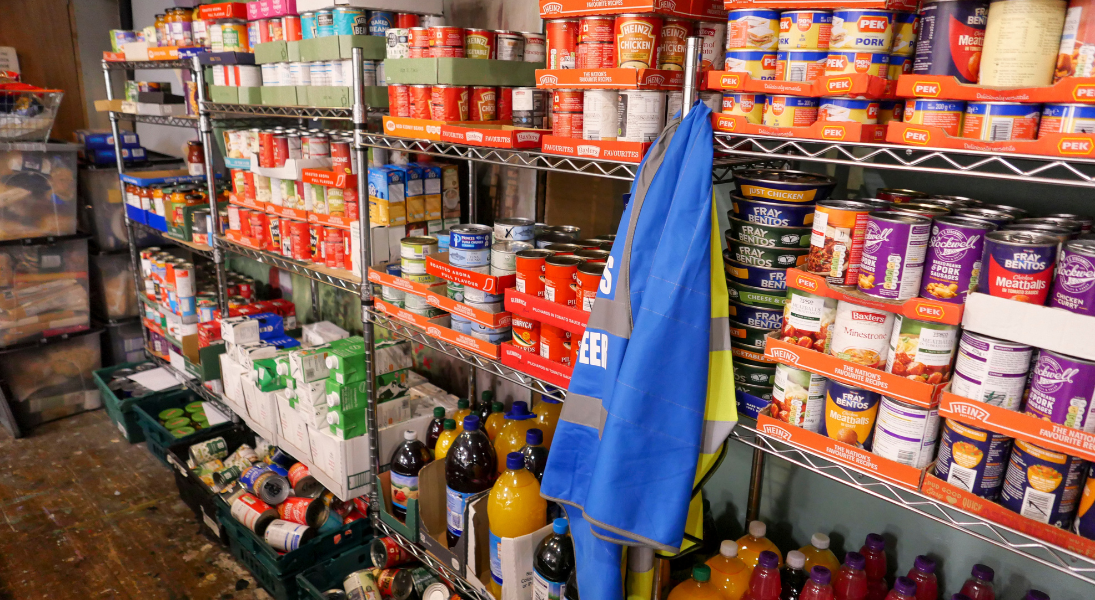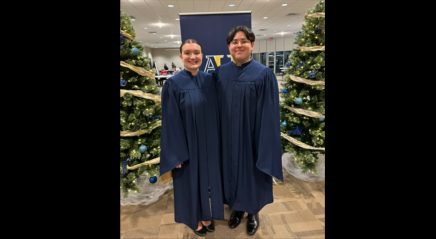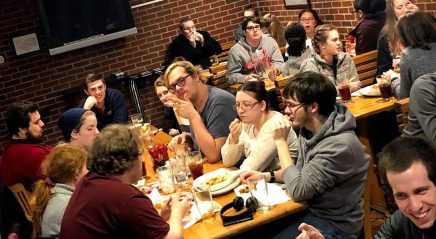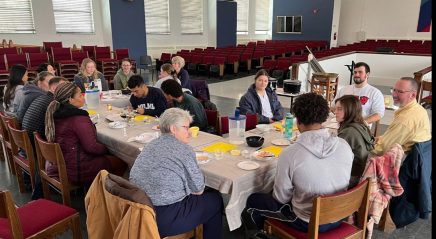Editor’s note: This reflection is part of a series by chaplains in the Network of ELCA Colleges and Universities (NECU) about the ways in which God is at work on NECU campuses.
We’ve all been impacted by rising prices at grocery stores in recent years. As the cost of food increases, food insecurity becomes a much more significant concern. Yet food insecurity has long been on the radar of chaplains serving at ELCA colleges and universities.
At times, people are surprised when they learn of food insecurity among college students. Many assume that the presence of a dining hall on campus means that students have access to all the food they need. Others think that because a student is attending a private, four-year, liberal arts institution, they must have the means to cover food-related expenses. However, these assumptions are often incorrect.
First, ELCA colleges and universities provide significant amounts of financial aid to students, so their tuition bill may be equal to or lower than what they might pay in-state at a public university. Many NECU institutions have a large percentage of students eligible for Pell Grants, which provide college funding for low-income students. At Lenoir-Rhyne University in Hickory, N.C., 46% of degree-seeking undergraduates are Pell-eligible.
Furthermore, any number of circumstances can prevent students from accessing the dining hall. On many campuses, commuter students aren’t required to purchase the meal plan. Some students may be juggling academics and a job or internship and have no time to eat between classes and work. Athletes have practices that sometimes run long, which prevents them from getting to the dining hall before it closes for the day. International students often stay on campus during breaks, when the dining hall and the rest of the institution shut down. Some students have allergies or religious beliefs that restrict their diets and limit their food options.
Regardless of the reason, food insecurity on college campuses is a national trend. In 2023, the federal government distributed $34.1 billion in Pell Grants to over 6 million students. Noticing this, the U.S. Government Accountability Office analyzed 2020 student data from the U.S. Department of Education’s National Postsecondary Student Aid Study, an inventory taken on multiple campuses.
The study found that an estimated 23% of college students (3.8 million people) experience food insecurity. Of that group, a majority (2.2 million people) had very low food security, meaning they reported multiple instances of eating less than they should or skipping meals because they couldn’t afford food. Additionally, this study found that 59% of students who faced food insecurity and were eligible for Supplemental Nutrition Assistance Program benefits did not take advantage of these benefits.
Meeting basic needs
One of the main tenets of Lutheran higher education is that our institutions encourage students, faculty and staff to discern their vocations; to explore their passions and use their gifts and talents to make the world a better place. The document “Rooted and Open: The Common Calling of the Network of ELCA Colleges and Universities” stresses that those who attend or work at ELCA institutions are called to strive for a world where all may flourish.
One way we can strive for that world and encourage students is to address food insecurity head-on. Numerous NECU institutions have food pantries on campus, and each takes a different approach. Some are accessible 24/7, whereas others are open only for select hours during the week. Some keep a budget to stock the pantry, whereas some depend on grants or on donations from local congregations, businesses and university employees. Some pantries provide only shelf-stable items, whereas others include access to fresh produce and refrigerated or frozen food. Some provide only food, whereas others have everything from hygiene products to clothes.
“At Luther, our Little Free Pantry (LFP) is a program of our College Ministries office, but it is entirely run by student leaders,” said Melissa Bills, college pastor and director of college ministries at Luther College in Decorah, Iowa. “While the LFP began as a simple ‘give what you can, take what you need’ project, it has grown in its scope and vision.
“Our student leaders have embraced an expanded mission to educate campus about food insecurity, to advocate for food and hygiene needs, to build relationships with community partners both on and off campus, and to creatively engage campus in the work of caring for student needs—food and otherwise. I am humbled and inspired by the compassion, energy and sensitivity that our student leaders bring to this work.”
Ann Rosendale, a university pastor and vice president for mission integration at Augustana University in Sioux Falls, S.D., agreed. “Much of Jesus’ ministry was focused on meeting people’s basic needs,” she said. “Every time we gather at the communion table for worship, we are reminded of hunger and hungry people in our world.
Numerous NECU institutions have food pantries on campus, and each takes a different approach.
“At Augustana, we make a point of blessing donations to our Campus Cupboard at least once a year during worship, making connections between the way Christ feeds us and the call we have, to make sure that our neighbors are fed. During the holy month of Ramadan, we take care to be sure that the cupboard is stocked with dates, lentils, rice, halal meat and other foods for our Muslim students who are breaking fast every day after sunset.”
The impact is far-reaching. David Coffman, campus pastor at Newberry College in Newberry, S.C., felt that impact as soon as Newberry opened a pantry. “A student stopped by the pantry the first week it opened,” he said. “As he’s holding a can of Chef Boyardee, he asked if he could have a can or two because he hadn’t eaten in two days. Other students came to the pantry and shared stories of not having a car and not having the ability to get to the grocery store. Another student shared that she did not have funds to be able to purchase some necessities for her room such as toiletries, paper towels or toilet paper.”
There is no “right way” to have a pantry on campus. However, many of these pantries are partially sponsored by the chaplain’s office, which indicates that the campus pastor is engaged in meeting everyday, physiological needs.
“Our Community Cupboard provides meals and essential support to CLU students experiencing food insecurity, ensuring they can focus on their education without the burden of an empty stomach,” said Ryanne Rojas, spiritual life engagement coordinator at California Lutheran University in Thousand Oaks, Calif.
Students can’t engage fully in academics, athletics, extracurriculars or employment if they aren’t well-fed. Working to meet these needs helps them to flourish.
Learn more about pantries at NECU institutions by contacting their campus pastors, and help support the many ways they care for and nurture students.









